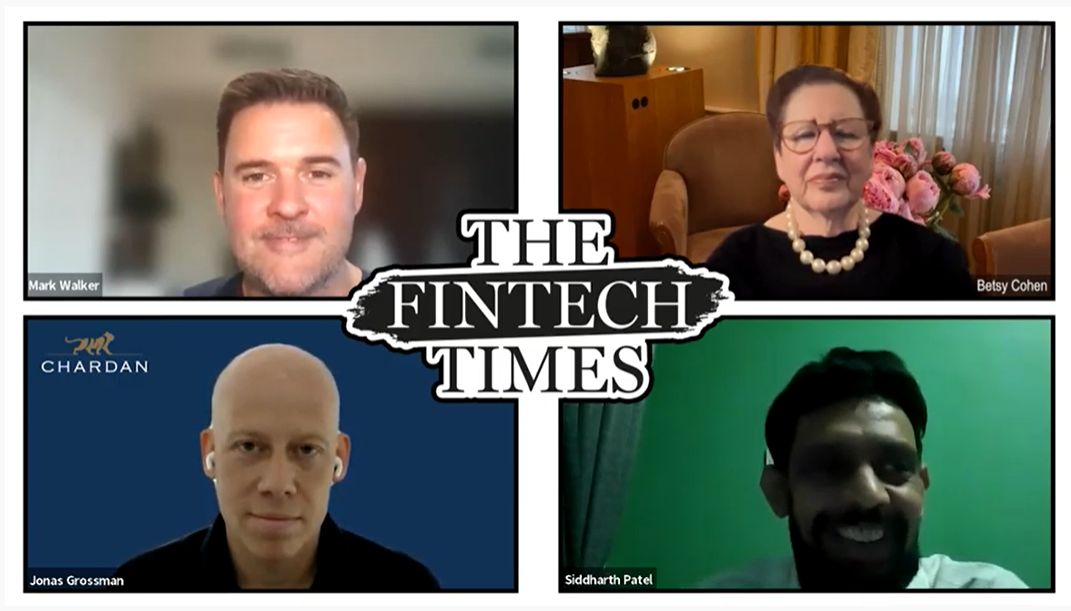To help fintechs learn more about special purpose acquisition companies (SPACs) as an option to finance growth strategy and go public, this edition of ‘The Fintech Times Presents’ live webinar series delves into the hot topic.
2021 was a hallmark year for the public markets, with a record number of SPACs created – raising more than $160billion on US exchanges. SPACs are expected to deliver further opportunities in 2022, with more than 580 SPACs currently looking for targets.
But, according to some analysts, the ‘SPAC bubble is about to burst’ because some companies taken public by SPACs have little to show in terms of business plan or revenue.
Tackling the subject is webinar host Mark Walker, editorial director at TFT, alongside Siddharth Patel, partner at private equity and investment advisory firm CVC, Jonas Grossman, president at independent global investment bank Chardan, and Betsy Cohen, chairman at FinTech Masala, a fintech focused investment platform.
The panel discuss why SPACs have seen such a growth in popularity and how they can serve companies during times of volatile markets. They also debate what percentage of SPACs will not fulfil a deal due to public equity financing.
Jonas Grossman, Chardan
For Jonas Grossman, SPACs fill a need because ‘there hasn’t been much innovation in the IPO process for decades’. He says: “If you’re a private company that is looking to list or raise capital in the US, you’re actually looking at private capital raise opportunities for the public pathway to IPOs and that’s fraught with risk and there’s some drawbacks to it.
“SPACs have entered as this flexible instrument that you can use to solve problems or create opportunities for private companies and it morphs over time. I think that when you’re a private company or a company looking to use a SPAC it’s really about finding a good partner that understands the product, tries to understand your company, can value-add post-business combination, and can be creative.”
However, he acknowledges that global markets are challenging at the moment and advises fintech leaders to consider carefully their options.
“The state of the SPAC market is similar to the state of the overall market, in that there’s a lot of uncertainty and there’s a lot of volatility with capital difficult to raise at the moment. If you’re a fintech entrepreneur, you need to look at SPACs as one vehicle available for going public, if you think you’re ready to go public. There are other ways to raise money, whether it’s privately or otherwise. So within that lens is the way to approach it.
“There are lot of advantages to a SPAC in a challenging market in the sense you can solve problems but it’s still tricky. SPACs will be interesting as an opportunity but there are other options open as well and if I was an entrepreneur that’s what I would be thinking about.”
Betsy Cohen, FinTech Masala
For Betsy Cohen, there needs to be a careful consideration of why companies want to go public in the first place before choosing which route to take.
She said: “I think there are lots of reasons to choose a SPAC if you’ve really decided that there’s a real reason to be public. But is there a good reason for you to be public other than the ego satisfaction of having taken a company from private to public which has a certain veneer?
“I think you really have to ask yourself: ‘Do I need the public markets to accomplish something within my company? Am I a company that does securitisations and could I do them better in the public market? If there’s a real reason to be in the public market then choose a partner, which is what a SPAC sponsor should be, as opposed to choosing an institution which may not be totally aligned both in compensation and otherwise with your goals.”
Siddharth Patel, CVC
Patel agrees that while it is important not to discourage people from looking at different avenues for raising capital there needs to be more consideration on whether a company should be going public. He believes the key question for anyone going into the SPAC market is whether a sponsor can deliver after-market performance.
He says: “Unfortunately I think through the frenzy that we saw in the last 18 months, what has happened is that alot of companies have taken advantage of SPACs as a vehicle to go public that really should not be public and probably should not be owned by retail investors. That has had its own impact on the market in a pretty negative way in that people are viewing any SPAC asset with a negative bias whether the underlying quality of the business and the valuation the business makes sense or not. That is driven by the fact that probably a lot of companies went public that really don’t belong in the public arena.
“If there is a good reason for a company to go public then SPACs are an opportunity for high quality companies to go public or to raise private funding. So, it’s not all doom and gloom and it’s important not to discourage people from looking at different avenues for raising capital because there is no cookie cutter answer to any question, you need to look at it case by case. The environment is changing but at the same time it doesn’t mean that SPACs are off the market completely.”




